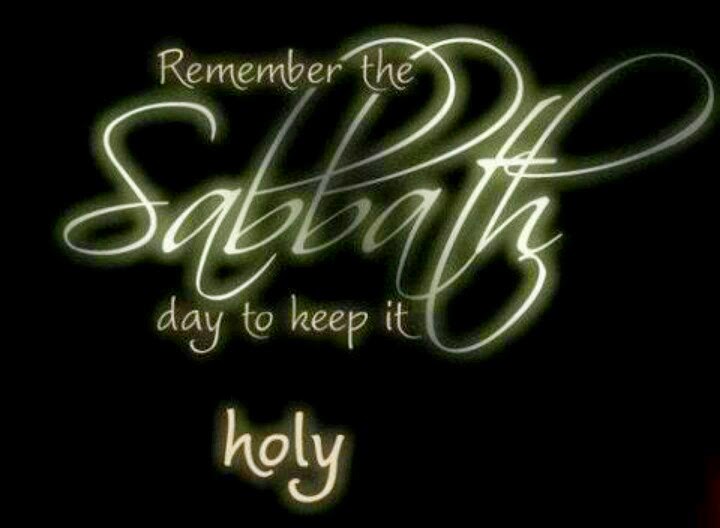One Sunday morning not too long ago I experienced one of those anomalies that can sometimes occur when all of my teenage class was out of town for one reason or another. Knowing where they were all at I unworriedly walked from my empty classroom into the young adult class just across the hall to enjoy the rare opportunity to be a student instead of a teacher. However, I was not in there too long before the phone rang and I was called out of class to talk to the person on the other line.
I’m still not extremely sure what prompted him to call us, of all people, but whoever it was on the phone was confused as to why we were assembled for worship on the first day of the week when the Old Testament clearly states that God’s people were to remember the Sabbath and keep it holy (Exodus 20:8). Now this wasn’t an Orthodox Jew. From everything I could tell this was a person who understood the supremacy of Christianity but simply did not understand the supremacy of the New Testament law over that of the Old. So I took some time to explain some passages that both foretold and established the temporary nature of the Old Testament law, how it was fulfilled in Christ, and that we have since been given a new and better law to govern our lives (Jeremiah 31:31-34; Matthew 5:17; Hebrews 8:6-13). He accepted my information with the promise of continued study and our conversation ended.
That conversation only went to confirm to me something that I’ve really known for some time and that is that many, many people are greatly confused about the modern purpose of those two major divisions of the Bible. So many refuse to give any allegiance to the New Testament law while they still hold on to certain remnants of the Old Testament law. Honestly it’s almost like the Bible is a buffet line and folks pick and choose what they like from each while ignoring the rest. “That instrumental music and a day off on Saturday in the Old Testament, and that love and mercy in the New Testament. I’ll take some of that. But, wait, those animal sacrifices and no pork in the Old Testament and that emphasis on obedience in the New Testament; I don’t really care much for that.”
To explain the Bible’s answer to this fundamental question I would refer your attention to all three of those passages mentioned above. Read and study them in conjunction with one more I’d like to mention. In Galatians 3:19-25 Paul sought to explain the purpose of the law of Moses to the Galatian church riddled with confusion brought about by Judaizing teachers. His inspired explanation was this:
“What then is the law? It was added because of transgressions, till the seed should come to whom the promise hath been made; and it was ordained through angels by the hand of a mediator. Now a mediator is not a mediator of one; but God is one. Is the law then against the promises of God? God forbid: for if there had been a law given which could make alive, verily righteousness would have been of the law. But the scriptures shut up all things under sin, that the promise by faith in Jesus Christ might be given to them that believe. But before faith came, we were kept in ward under the law, shut up unto the faith which should afterwards be revealed. So that the law is become our tutor to bring us unto Christ, that we might be justified by faith. But now faith that has come, we are no longer under a tutor.”
Paul’s explanation was that the law of Moses was a temporary guide for mankind to convince them of their sins and guide them until such a time would come when God would reveal the fullness of His will in Christ. But when that time would come there would no longer be a legal obligation to that former law. It would continue to be a tool for learning (Romans 15:4) but it would no longer be a standard for man. Our legal obligation would be given to the law of Christ (in the New Testament) and we would be accountable to it and it alone. Whatever the law of Moses commanded, authorized, or cited has no more legal bearing to us today. We belong to Christ and it is to His word we must pledge our allegiance.
At the mount of transfiguration Moses and Elijah each made appearances. Moses appeared as a representative of the law which bore his name and Elijah appeared as a representative of the prophets. And it was at that great event that a bright cloud overshadowed them placing the spotlight solely on Jesus, during which time the Father said these words – “This is my beloved Son, in whom I am well pleased; hear ye him” (Matthew 17:5). Not Moses, not Elijah, but Jesus. He is our Lord and His will is recorded in the pages of the New Testament sealed by His own blood.
Oh, and by the way, the New Testament law removed man’s legal obligation to the seventh day as a day of rest and placed it on the first day as a day of worship (Matthew 28:1; Acts 20:7). That’s why we don’t remember the Sabbath and keep it holy.
-Andy

